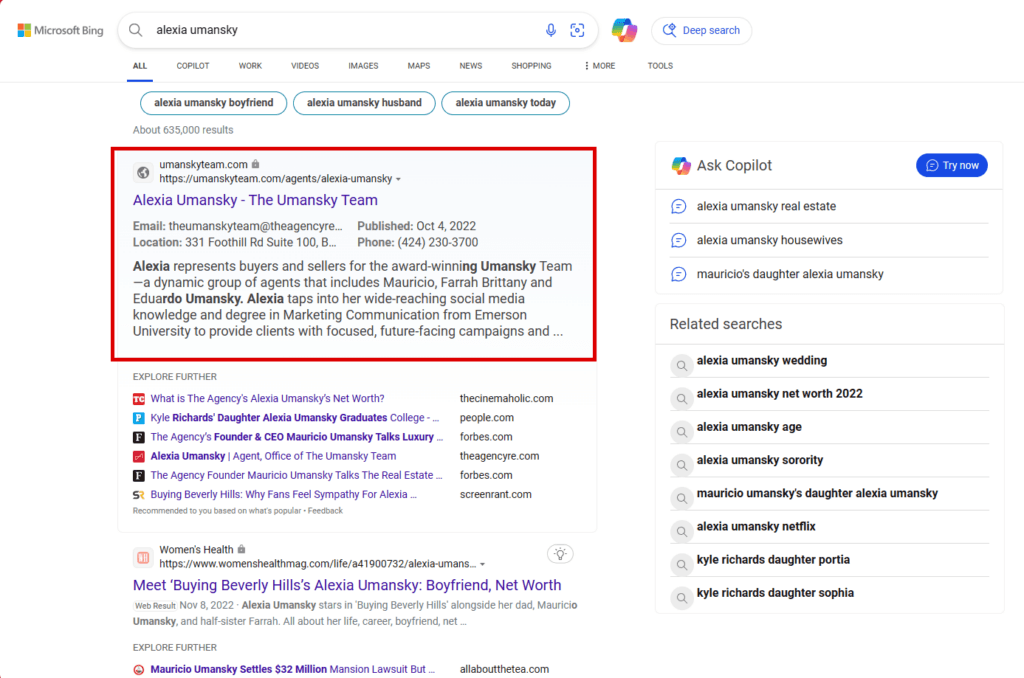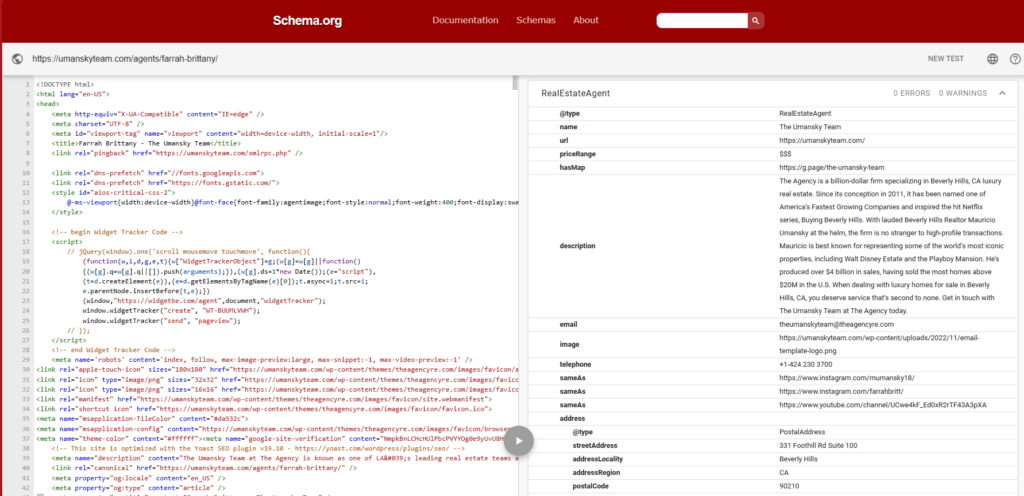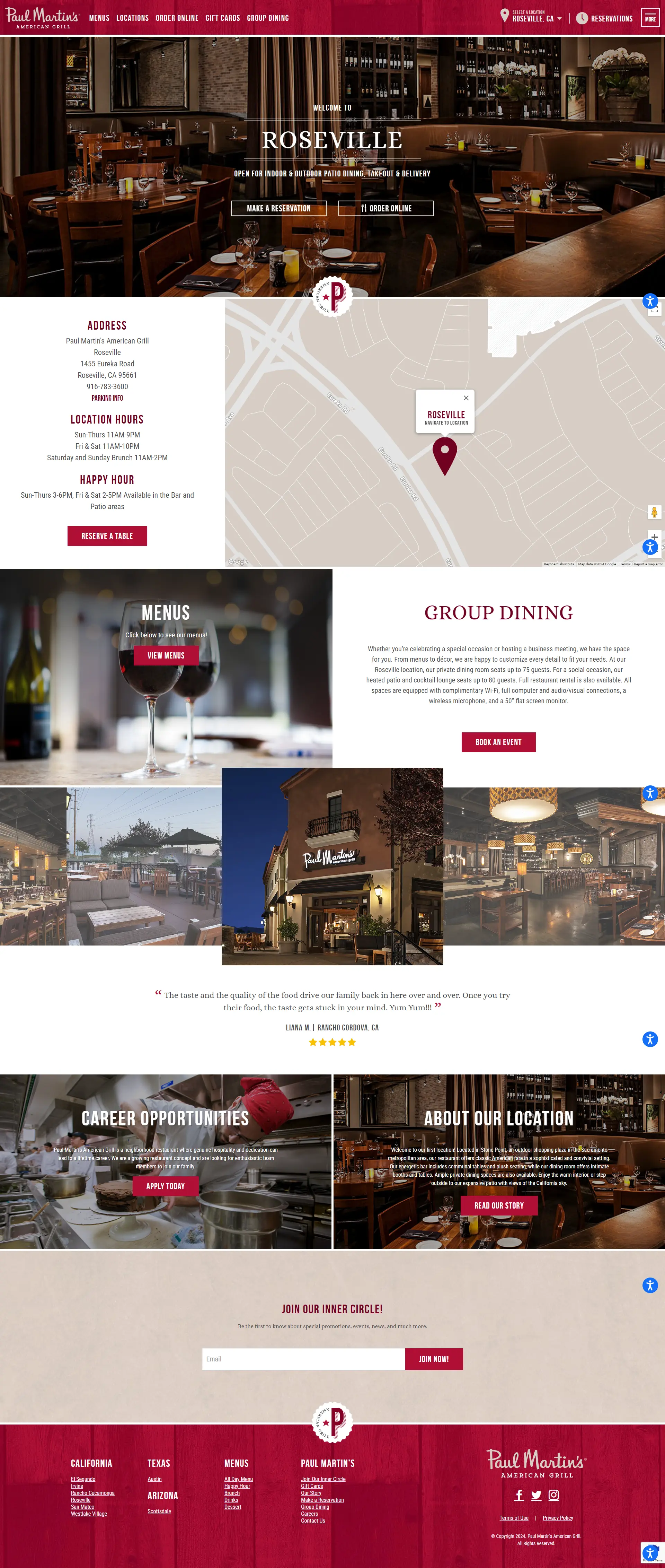In the intricate ecosystem of online real estate marketing, structured data markup emerges as a powerful tool, offering real estate agents the means to bolster their digital presence and credibility.

Specifically designed to convey essential information about agents to search engines in a standardized format, the “Real Estate Agent” structured data markup enriches search results with key details such as agent name, agency affiliation, contact information, and customer ratings.
By harnessing this markup, agents can amplify their visibility on search engine result pages (SERPs), facilitate easier discovery by prospective clients, and establish themselves as trusted authorities in their local markets. Let’s delve into the intricacies of this markup schema and explore how it can elevate the online presence of real estate professionals.
How is the “Real Estate Agent” Structured Data Markup Displayed By Search Engines?
Long-story-short: Your contact information and bio are displayed front and center.
Here’s how the “Real Estate Agent” Structured Data Schema Markup display of your page’s contact information and bio displays on the search engines:

Optimizing for Search Engines
1. Schema Markup for Enhanced Visibility: Implementing schema markup, specifically structured data markup related to real estate agents, can significantly enhance visibility on search engine result pages (SERPs). By providing search engines with structured information about agents, including their name, agency, contact details, and customer ratings, schema markup enables richer search results, such as rich snippets or knowledge panels, which can increase click-through rates and visibility.
2. Local SEO and Geotargeting: Real estate agents operate in localized markets, making local SEO strategies crucial for visibility. Optimizing website content, including agent profiles and property listings, with location-specific keywords and schema markup helps improve rankings for relevant local searches. Additionally, leveraging geotargeting techniques in online advertising campaigns ensures that agents appear prominently to users searching for properties in their area.
3. Content Strategy and Authority Building: Producing high-quality, informative content tailored to the needs and interests of prospective buyers and sellers not only establishes agents as industry authorities but also enhances search engine visibility. By incorporating relevant keywords, answering common questions, and addressing local market trends, agents can attract organic traffic to their websites and position themselves as trusted resources in the eyes of search engines and users alike.
4. Mobile Optimization and User Experience: Given the prevalence of mobile search in the real estate domain, optimizing websites for mobile devices is paramount. Mobile-friendly websites that load quickly, feature intuitive navigation, and provide a seamless user experience not only rank higher in mobile search results but also cater to the preferences of on-the-go users. Additionally, ensuring that contact information is prominently displayed and easily accessible on mobile devices can drive conversions and inquiries from prospective clients.
5. Reputation Management and Online Reviews: Online reviews and ratings play a significant role in influencing consumer decisions in the real estate industry. Encouraging satisfied clients to leave positive reviews on platforms such as Google My Business, Yelp, and real estate-specific portals not only boosts agents’ credibility and reputation but also improves visibility in local search results. Responding promptly and professionally to both positive and negative reviews demonstrate transparency and commitment to client satisfaction, further enhancing the agent’s online presence.

Conclusion
Incorporating the real estate agent schema into digital marketing strategies not only enhances visibility on search engines but also fosters trust, credibility, and engagement with prospective clients. By leveraging structured data markup, local SEO tactics, authoritative content, mobile optimization, and reputation management techniques, real estate agents can effectively navigate the digital landscape, connect with their target audience, and drive meaningful business outcomes in an increasingly competitive market.














